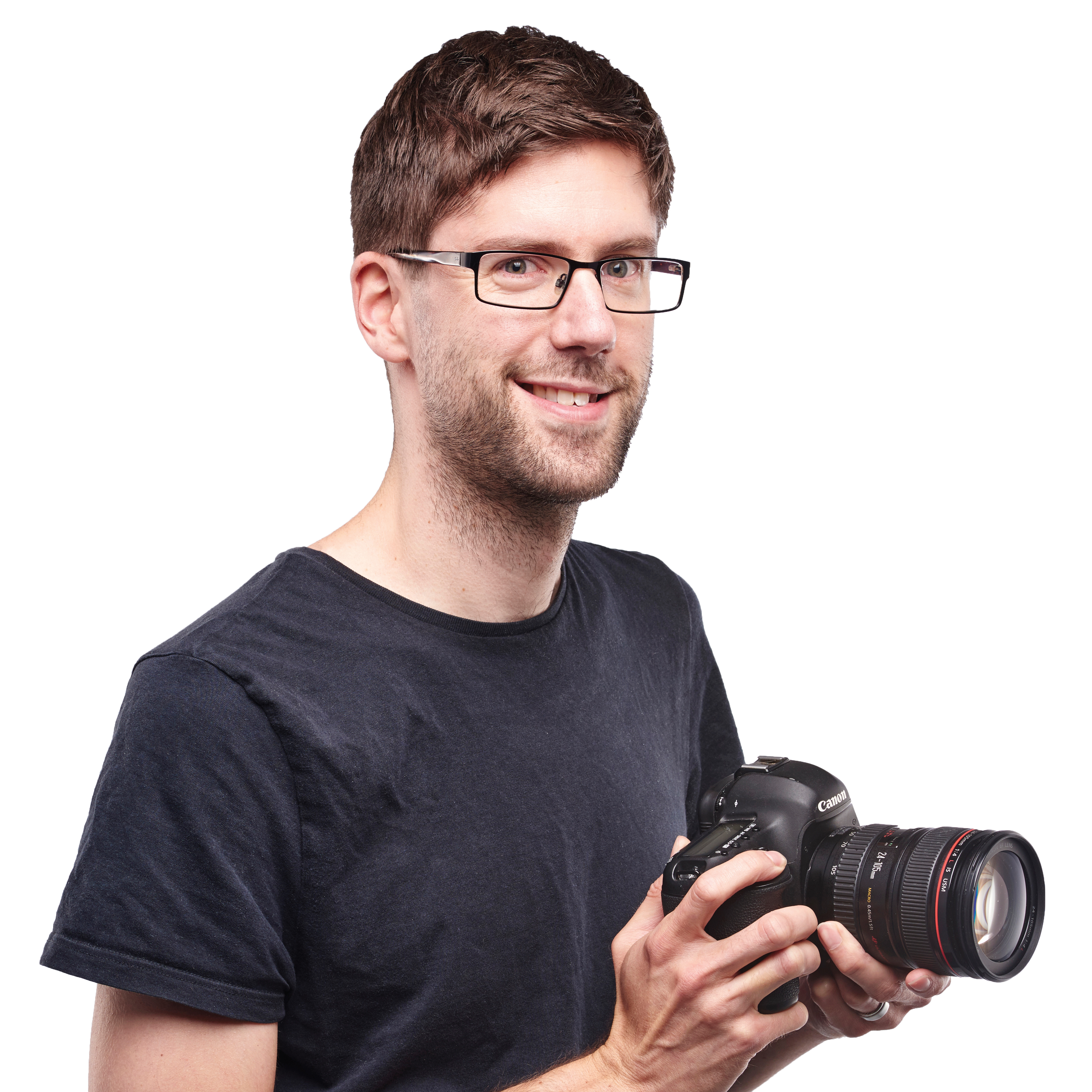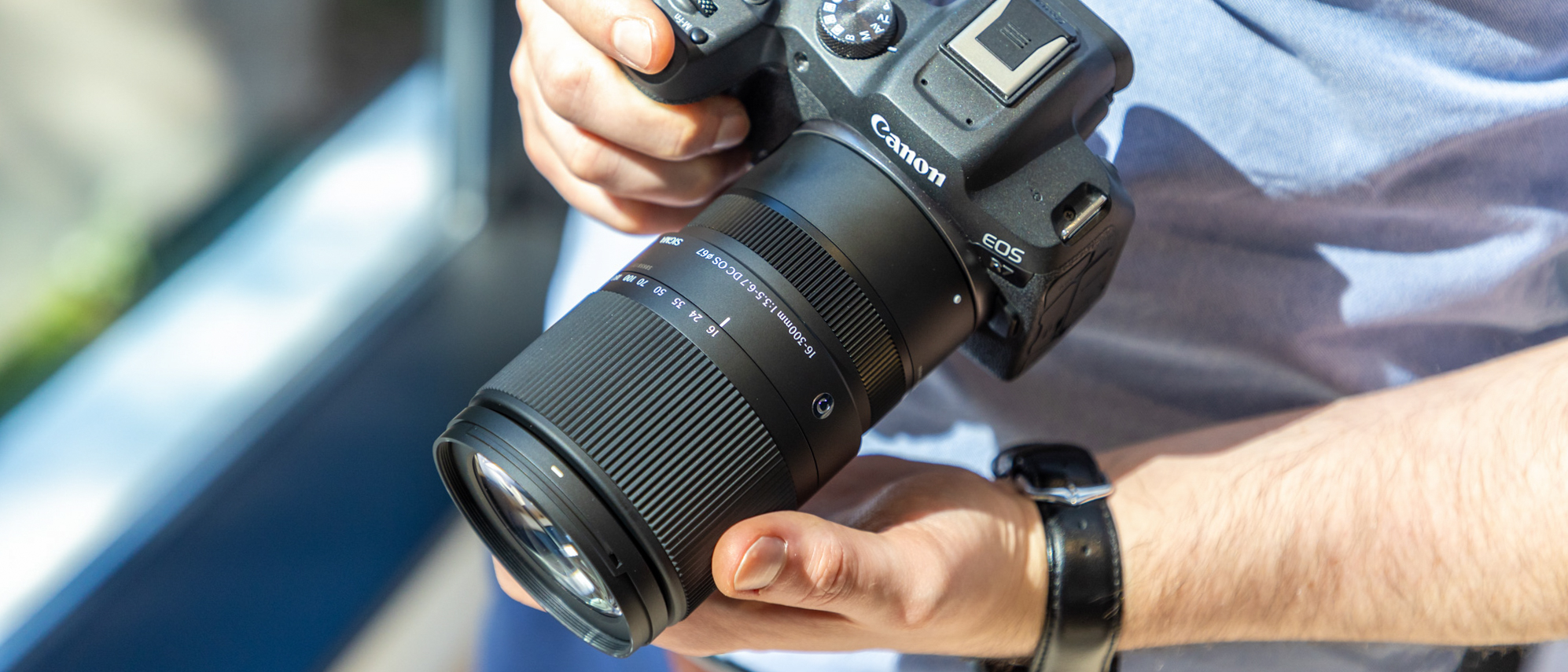Orbbec announces new 3D depth-sensing cameras, advancing AI subject detection
Developed in conjunction with Microsoft, the new cameras are ideal for robotics, body tracking, dimensioning and scanning
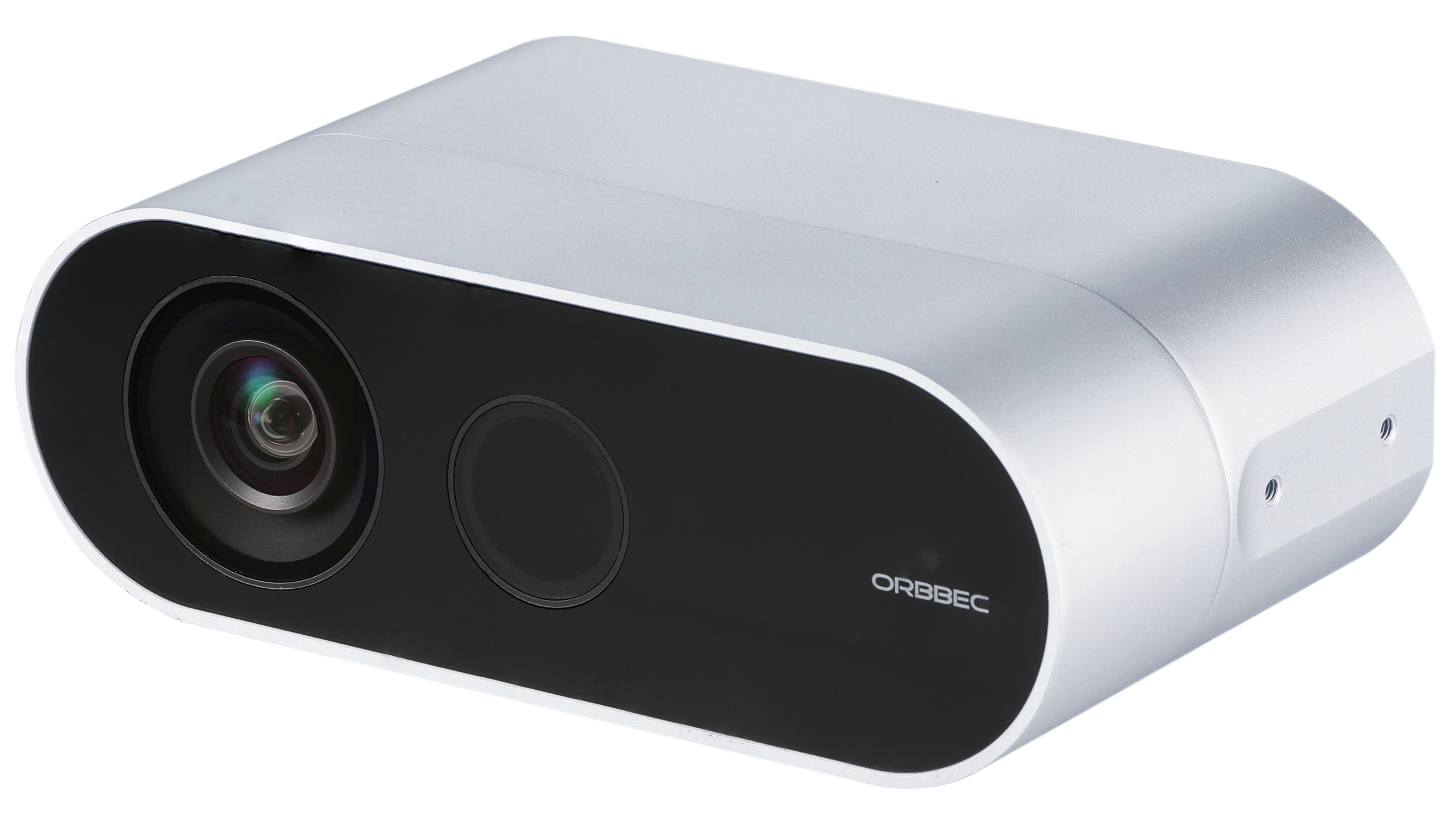
3D depth-sensing cameras (also called Time of Flight cameras) are pivotal in the advancement of AI, with applications ranging from motion control sensing, to self-driving cars, to object avoidance in drones. Now Orbbec, an industry leader dedicated to 3D vision systems, has announced a trio of new 3D camera products developed in partnership with Microsoft.
What is a Time of Flight camera?
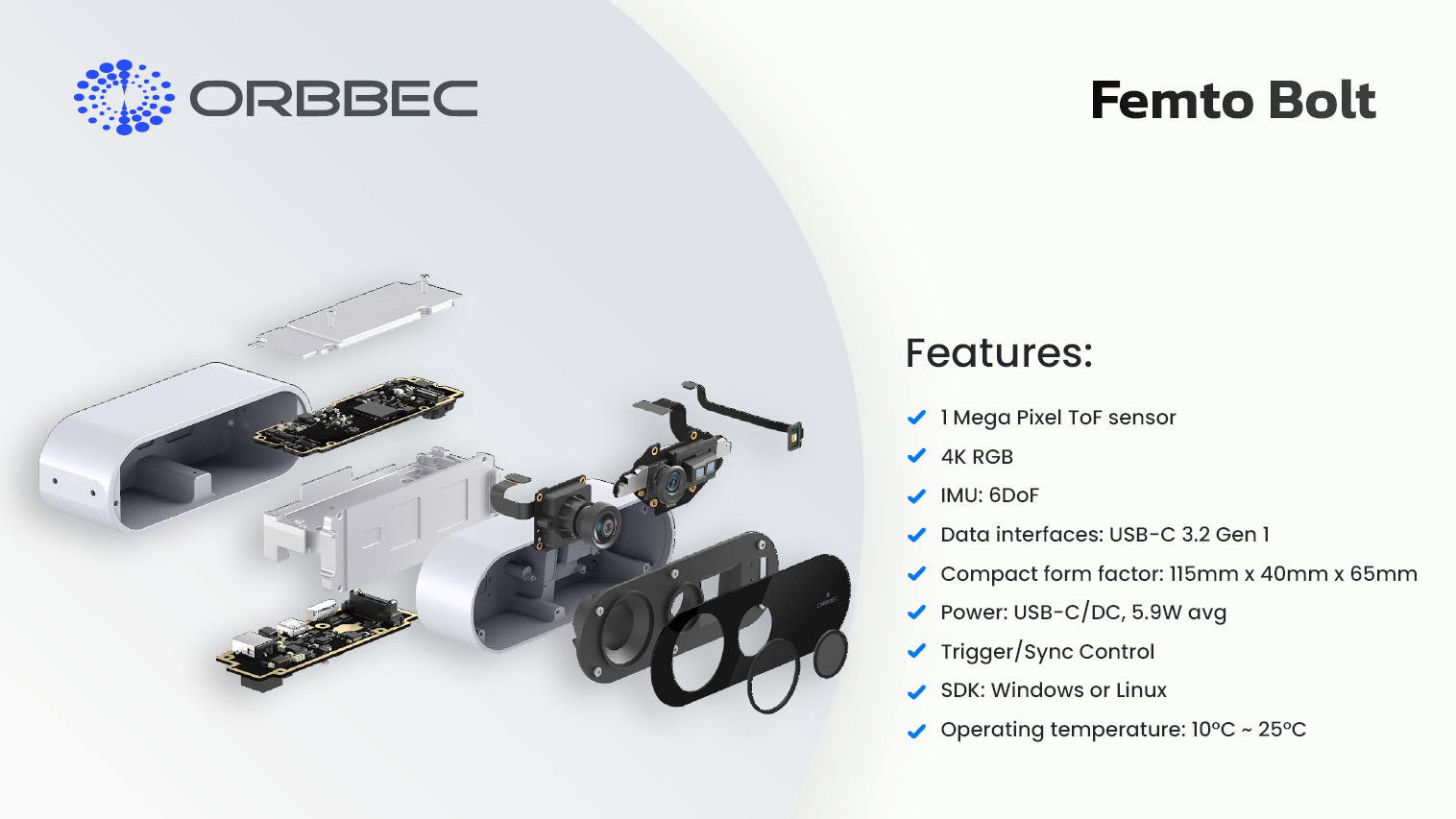
First is the Femto Bolt, a compact RGB-D camera with HDR capability for RGB and advanced sync trigger support. Depth compute is performed on host computer via the camera's USB-C connection which provides power and transfers data. The Femto Bolt is expected to be available in October.

The second camera in Orbbec's new range is the Femto Mega. Announced in January and currently in production, it is the industry’s highest resolution smart camera. It uses a built-in NVidia Jetson Nano to run its advanced depth vision algorithms to convert raw data to precise depth images, thereby eliminating the need for a separate computer. It also adds Power over Ethernet (PoE) connectivity for both data and power, making the camera ideally suited in environments where the camera has to be placed away from the processing computer, or in multi-camera setups.
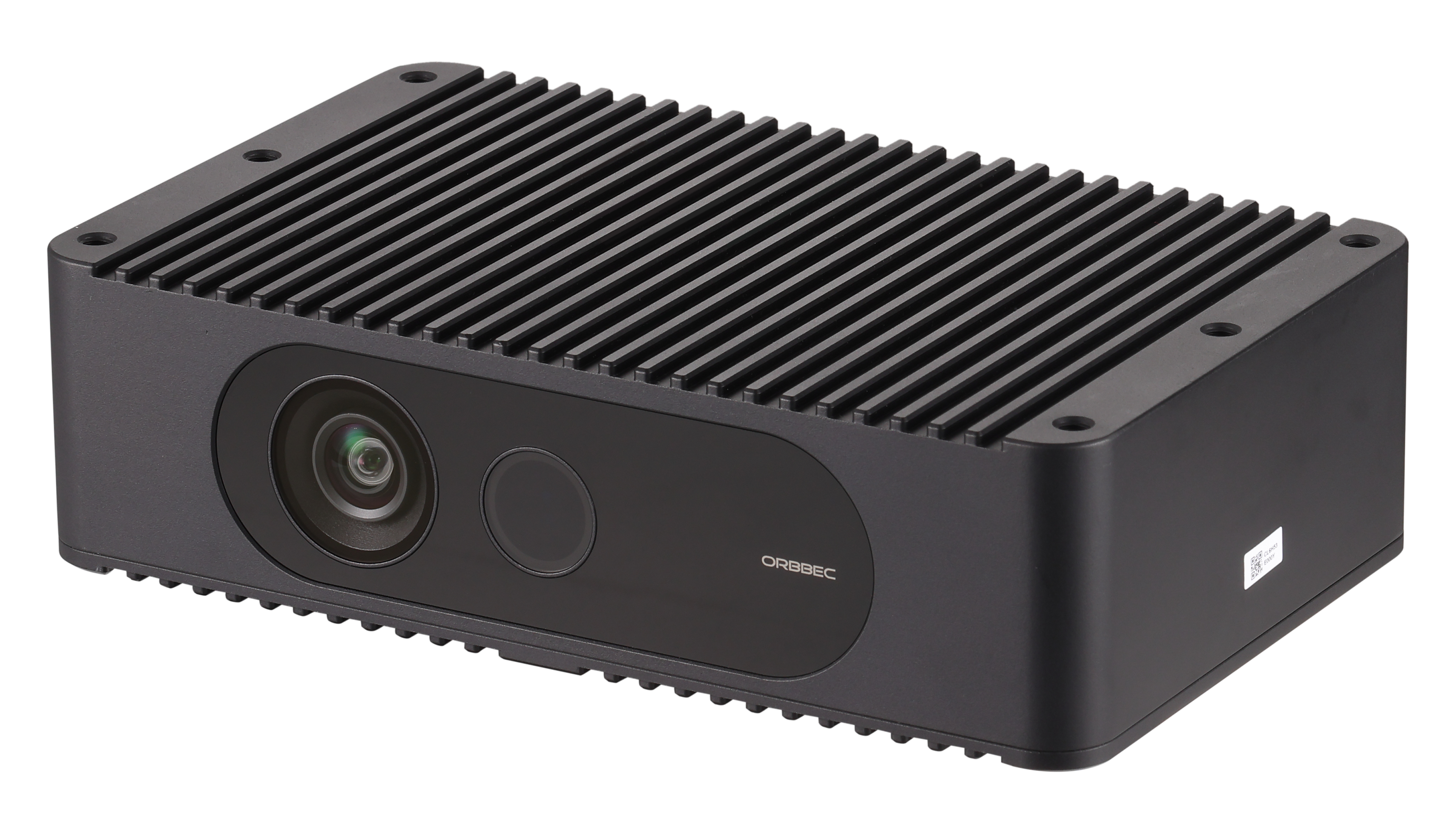
Finally, there’s the Femto Mega I. Currently shipping, this ruggedized intelligent 3D camera boasts an IP65 ingress protection rating, making it suitable for use in industrial settings like warehouses, manufacturing, and other harsh environments.
All three cameras use a 1 megapixel depth camera, based on Microsoft’s iTOF technology used in Azure Kinect Dev Kit and Hololens 2. This enables a wide field of view and high accuracy across a broad range. Also incorporated into each Femto device is a high-performance 4K RGB camera, and a 6DOF IMU for orientation. A sync control hub enables easy connection for multi-camera and multi-sensor networks. The camera's software development kit enables easy setup and registration, while the application programming interface allows integration with various applications.
More information can be found at the Orbbec website.
Get the Digital Camera World Newsletter
The best camera deals, reviews, product advice, and unmissable photography news, direct to your inbox!
Read more:
The best photo-editing laptops
The best MacBooks for photo editing
Best external hard drives for photographers
The best NAS drives
Best internal SSDs
The best drawing tablets for photo editing
The best mouse for photo editing
The best monitors for photographers
The best photo-editing software
Best laptop stands
Ben is the Imaging Labs manager, responsible for all the testing on Digital Camera World and across the entire photography portfolio at Future. Whether he's in the lab testing the sharpness of new lenses, the resolution of the latest image sensors, the zoom range of monster bridge cameras or even the latest camera phones, Ben is our go-to guy for technical insight. He's also the team's man-at-arms when it comes to camera bags, filters, memory cards, and all manner of camera accessories – his lab is a bit like the Batcave of photography! With years of experience trialling and testing kit, he's a human encyclopedia of benchmarks when it comes to recommending the best buys.
